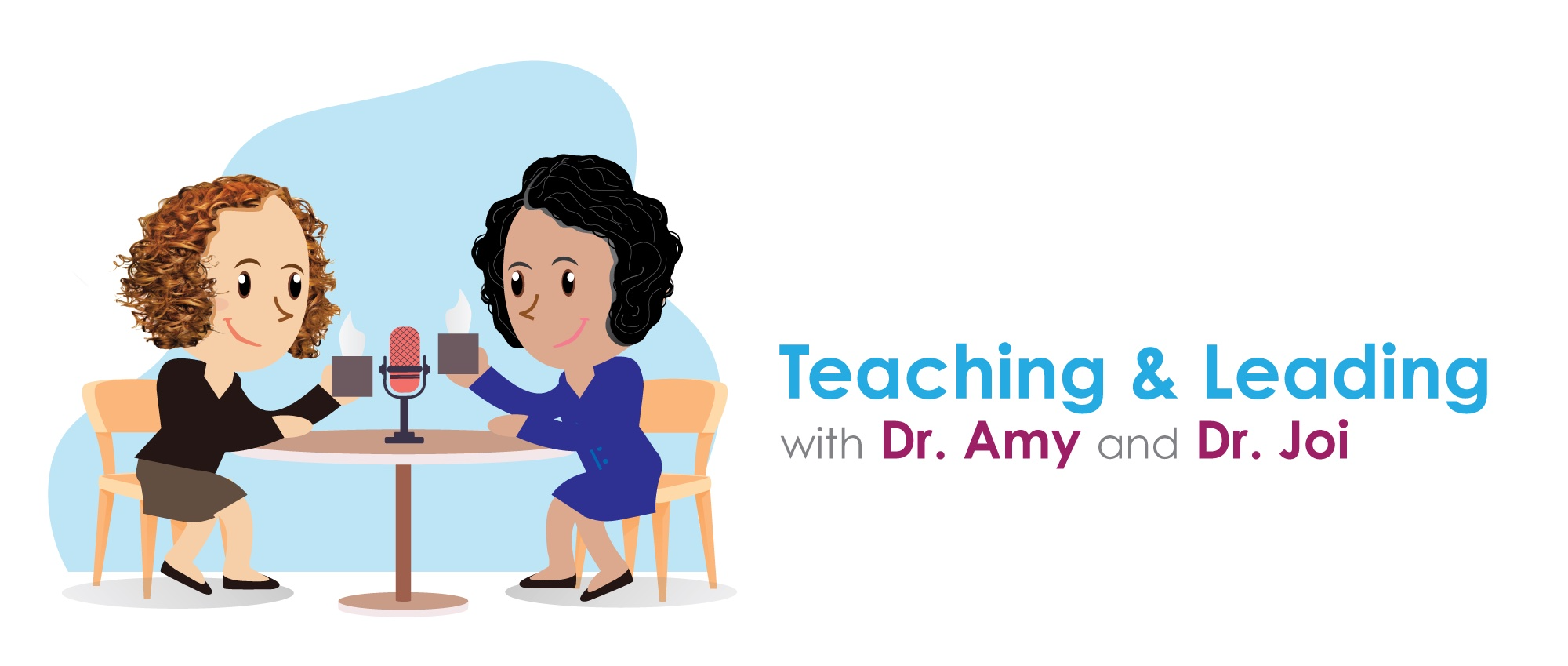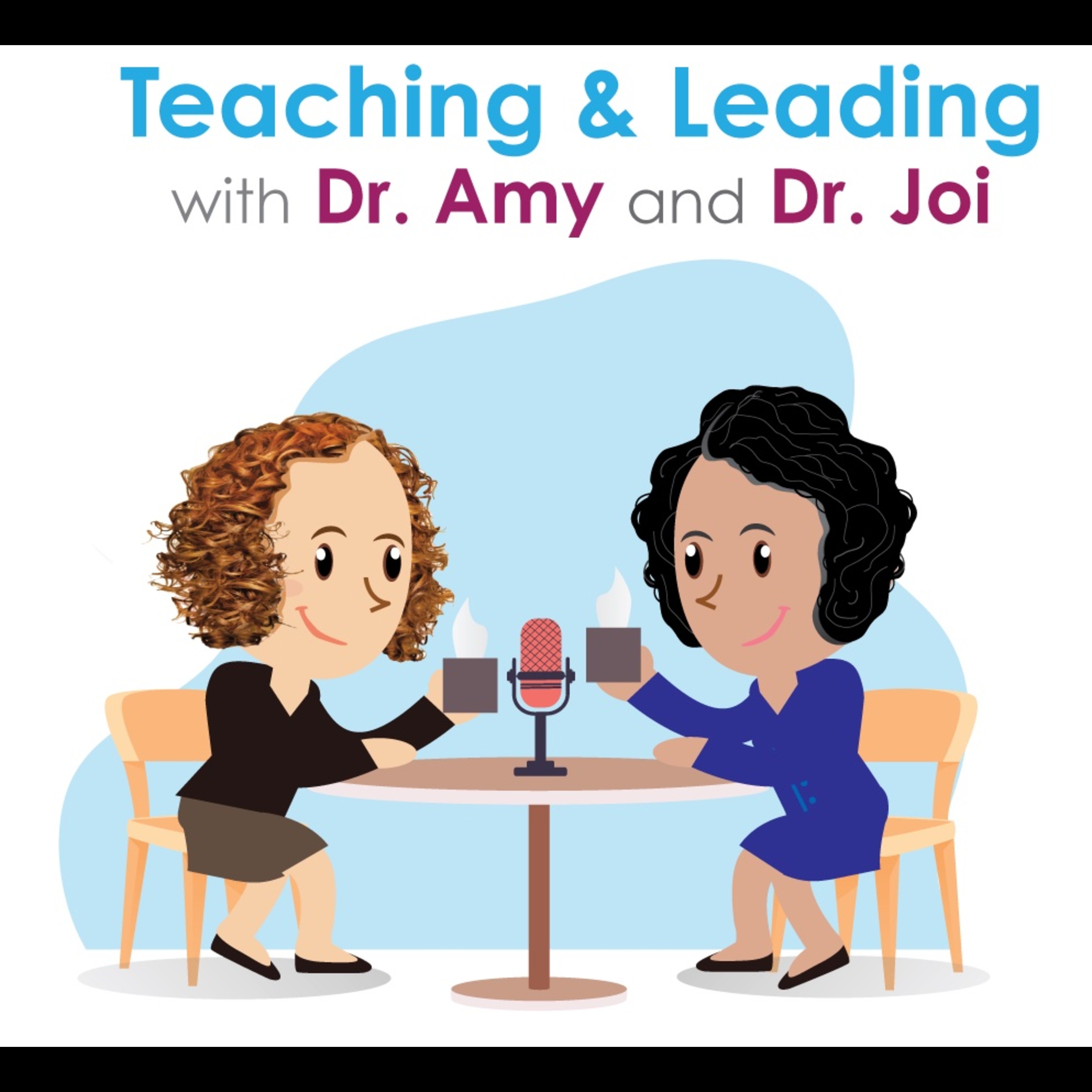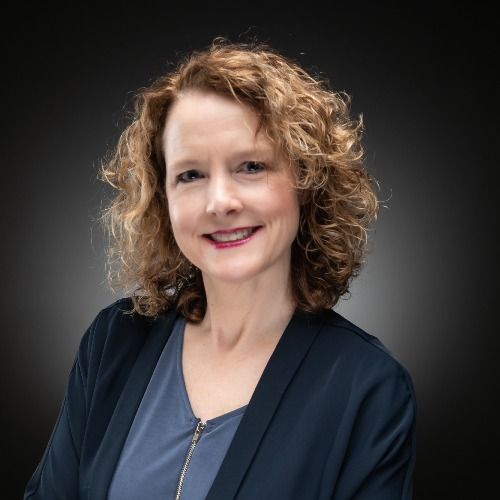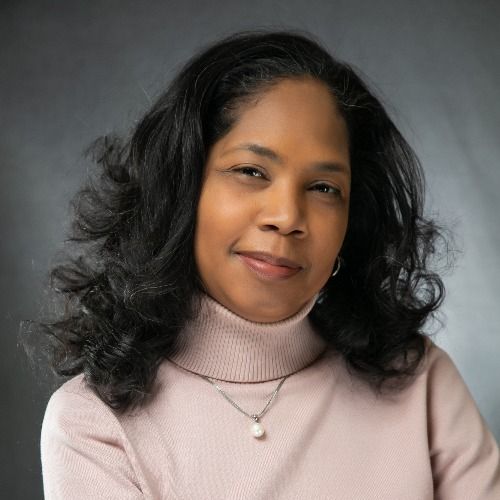Answering Why Educators Stay with Ms. Charity McGee
In this episode, we talk to Ms. Charity McGee, a 7th grade math teacher who started an education career in spring of 2020. Ms. McGee describes her experience as a student and why she wants to create a safe space for learning for her own students. We also discuss what collaboration can look like and who Ms. McGee says motivates her to be her best self.
Transcript
SUMMARY KEYWORDS
students, educators, feel, teaching, teacher, collaboration, work, amy, collaborate, classroom, experience, joi, charity, wanted, stay, impact, receive, guess, today, grade level
SPEAKERS
Joi Patterson, Amy Vujaklija, Charity McGee
Charity McGee:I think that I enjoy most just being able to like to create a safe space for the students to learn. I like to think of my classroom as like a home away from home.
Amy Vujaklija:Welcome to our podcast teaching and leading with Dr. Amy and Dr. Joi. I am Dr. Amy Vujaklija, Director of educator preparation.
Joi Patterson:And I am Dr. Joi Patterson chief diversity officer. Our podcast addresses issues through the lens of diversity, equity and inclusion, along with solutions for us to grow up educators.
Amy Vujaklija:So join us on our journey to become better teachers and leaders. So let's get into it. Hello, Dr. Joi. Hello, Dr.
Joi Patterson:Amy, you sound so proper today. Well,
Amy Vujaklija:I had to put my glasses on. So I feel like kind of bookish. But I think really, I'm excited because we are continuing our series on why educators stay. So that should really be rejuvenating and exciting for all of us. Our listeners today. It is
Joi Patterson:because there's lots of reasons that educators Hey, you know, something that we've learned so far? I mean, we've done a lot. So we've interview new educators, experienced educators, we've surveyed the gamut of educator surveys. And what did you find that wasn't part of the top three? That was surprising to me.
Amy Vujaklija:I did not see pay.
Joi Patterson:I know,
Amy Vujaklija:why educators stay is about impact on students. It's about love of the content. And it's about bonding with their colleagues. Those are preliminary results. But whenever we look at almost 100 responses, pay was not in that it's close. It's not too far from the top three
Joi Patterson:who doesn't want to get paid more, albeit educators do not get paid enough. That is not why they are educators. I mean, they did kind of know about the salary before
Amy Vujaklija:in the survey even asked, Why did you go into teaching? What was your primary drive for that enough? Again, pay is pretty far down on that list because people know you're not going to become a millionaire grant I teaching that stayed true whenever you look at why educators are still there. So we are talking to an educator today, who really was in that first year of that first year teacher. As a COVID teacher really pandemic teacher. Miss Charity McGee was raised in the Joliet area and a proud product of the Joliet public school system. Prior to teaching, she worked in public service as a social service assistant. Ms. McGee received her certification in December of 2019. And as we said, we know what happened in March of 2020. The world shut down. Her first two years of teaching were at Barack Obama Learning Academy in Markham, Illinois, where she taught sixth grade math, science, social studies and language arts on Zoom. And during her second year, she taught in person fifth and sixth grade math. Miss McGee is currently in her fourth year of teaching, and this is her second year at Hufford Junior High School in Joliet where she teaches seventh grade math and coaches JV volleyball. She serves on the Multi Tiered Systems of Support MTSS committee and enjoys being involved where ever there is a need, but I cannot forget that her most important role is being a mother of four.
Joi Patterson:Yeah, yeah.
Amy Vujaklija:Welcome to our podcast, Charity
Joi Patterson:Hello Charity
Charity McGee:Hello, hello. Hello. Thanks for having me. Well, perks
Joi Patterson:such a beautiful name. That's a story I guess for another day, but it is such a beautiful name and like my name joy, do you feel pressure by living having to live up to that name? Charity?
Charity McGee:No, no pressure
Joi Patterson:No. I think you have to assume a position when you have a name like Like that. Okay, so beyond what Dr. Amy read, can you tell us more about your educational journey and becoming a seventh grade math teacher because you became a seventh grade math teacher, during what we felt was a very, very difficult time. But when you're new, you don't even know what you don't know. So tell us about your experience.
Charity McGee:Um, prior to teaching, I jokingly called myself a career college student. Because it feels like I was in school for ever, I actually started taking college classes straight out of high school. But unfortunately, due to life and starting a family, my journey was kind of prolonged a little bit. But I did go to Joliet Junior College, where I was able to receive two associate degrees before transferring over to Governor state. And that's where I received my bachelor's degree, and my endorsements in mathematics. So that was December of 2019.
Amy Vujaklija:That is quite a time to be experiencing a first year. I know that whenever I was, in my first year of teaching, I think I might have cried every day, but it got better, it got better. And I didn't even have the reasons that you would have had in your first year. And Dr. Joi, and I've been discussing why many different episodes why people leave the field of education, but that often overshadows the reasons people stay. So we're really wanting to get into that topic today.
Charity McGee:Well, to start, I stay, because it excites me to know that I'm educating our future. I've always wanted to become a teacher. And I worked really hard to achieve that. So I'm not a fan of wasting time. So it would be kind of a waste of time to go through all of that and experience all of that and endure through all of that, and then to not stay in the field. So that is part of the reason why I do stay. But there's really nothing else that I'd rather do. I've known since about 10th grade that teaching is what I wanted to do. And I've always been told that when you're doing what you want, it's not really work. So to me, it doesn't really seem like work, even though I know that it is just because it is something that I enjoy to do.
Joi Patterson:Yeah, I felt the same way. When I started teaching. It wasn't a pandemic, but it was not great. You know, when I started, I had a room of 40, non English speaking students, and someone gave me the textbook and said, like, close the door, like have fun. And I basically had to figure it out. And even though I was figuring it out, I still enjoyed every moment. And it sounds like you're really involved. So you go beyond just teaching, you know, you're getting involved in the activities of school, and social, emotional and social development, all those things. So think back for a moment. A few years ago, when you became an educator, was there a defining moment when you trusted yourself, when you really felt like because I know for me, I felt like I was pretending for a while, like when you felt like you trusted yourself. And you felt like you were a professional educator, positively impacting those students. So you knew this is you know, you felt like I did all the work. This is what I'm going to do. Was there a moment when you say, Yes, this is it? And yes, I am actually having an impact.
Charity McGee:I think the first time that I actually felt that way, was actually before I was actually teaching, I was student teaching. And it would have probably been when I was at the end of my student teaching experience at Black Hawk primary center. It was totally unexpected. But the day before I left all of the students you know, they give you their little trinkets and their notes and their cards and and so it really took me by surprise because by me being there for such a short period of time, I didn't really realize that I was having an impact or even that they care. And so just to receive that from them prior to leaving it really let me know that that I was having an impact on students. And even when I first transferred here to Hufford, it was like Teacher Appreciation weekend. Of course, it was my first year so I wasn't expecting anything and, and so students, you know, we're making cards and things like that and just saying these things about me that that I Guess I didn't even realize I was doing. And so that's what let me know that I was having an impact on at least some of them.
Joi Patterson:So we need that, don't we?
Charity McGee:It's good to hear. It's definitely good to hear.
Joi Patterson:And it doesn't cost anything, Dr. Amy.
Amy Vujaklija:No, well, it just cost time. So I'm gonna veer down that road just for a moment. Whenever I was reading your bio, I was thinking about what you're involved in, and the types of service that you do. Why, why do you spend that time that precious time that you have, at the same time, you have papers to grade you have other things that have to be done, what feeds you like why being involved in in some of these other committees, I
Charity McGee:feel that it's necessary, not just for my own personal development, but also to help develop those relationships with my students. I know that as a college student, and you know, going through different trainings and different mentorships, as a new teacher, they talk a lot about developing relationships with students. And there's really no way to do that if you're not involved. So sometimes it takes, you know, meeting them outside of the classroom, in order to make that happen. So I made it my business to like do lunch duty. And that way, I was able to get an experience with a broader range of students, not just the ones that I was teaching, I got to see students from other teams and from other areas and other parts of the building. With coaching volleyball, I'm able to work with all grade levels, besides, you know, just the seventh grade students, and working with the, the MTSS. It's developing those interventions for, you know, all students, not just necessarily my students, and I think that helps me to better understand what my role is, and what's needed and how I can help my students.
Joi Patterson:And through everything that you're saying, I'm hearing, collaboration, collaboration, not something that I did, as a new teacher, I need to learn from someone like you, even after all these years, almost 30 years. But collaboration wasn't a big part for me. And I guess, because of the way that I started, I did very little collaboration, I wanted to keep the noise and the gossip and the rumors, you know, out of my head away from my students out of my classroom, that had to be my sacred space. And I wanted to come to work, and just do right by my students. But as I became further in the career, and I became an administrator, I learned to rely more on collaboration, it would bring out the best and whatever we were doing, you know, to have people with like minded goals, but still have different perspectives. So when you collaborate charity with others, who you collaborate with the most? And what joy do you find in collaborating? So that's one question about who you collaborate the most, and the joy that you find. But we know that when you're doing that, disagreements happens, right? So you don't always disagree? How have you faced those adversities and disagreement, and lack of unity when you're trying to collaborate?
Charity McGee:Um, as far as collaboration goes, I have noticed a difference from being where I am now in the previous school that I was at. And I think it's just the structure of it all. At my old school, they kind of left it to us to collaborate with each other. And if we did, we did, and if we didn't, we didn't. So collaboration there was just among those who chose to, but whereas where I am now, we have like teams and many teams, and so it's expected. And so I think that because it's expected, everyone is more receptive to it. There's mandatory meetings and things that we have to participate in, that allows us to collaborate. I would say the the thing that I collaborate most about would be just the activities that we're doing in class. I meet with, like my math team, but I also meet with my grade level team. And so we're able to discuss, you know, what's happening at the seventh grade level and, and how we can help our students, but then we break it down even further and we talk with our math team. Do is to discuss, you know how things are going if things are going well, what activities were using for what. And so that helps me as a newer teacher to be able to collaborate with some of those veteran teachers, because now I'm not having to reinvent the wheel, I can use things that I know is already working, and kind of tailor that to fit the needs of my students. No, I was just thinking about the, the disagreement part of it, because I have experienced that as well. And I try to not be confrontational. Initially, as as a new teacher, my first, I guess, my first response was to, I guess, just kind of back off. So my initial response was to just kind of not do anything, I guess. But my experience in that is that if I don't address it, then it continues to happen. Or so I've learned to just deal with things in a way that makes me comfortable. I know. Like for some, you may be comfortable with a face to face or, you know, others, it might be through email or through texts, or however. So what I would say to that is to just do what makes you comfortable, but not be confrontational, because things are bound to happen. But I think that to not address it kind of just allows things to linger. And so I'm a fan of just getting things out in the open and clearing the air. And that way, you know, there's no guessing some of
Amy Vujaklija:my experiences with collaboration have been fantastic. And whenever I was a middle school teacher, we had grade level teams, like you were saying, you know, grade level or content level collaboration. And sometimes, it would be the team of us who would want to go into another direction. Like we had a great idea for a book that we wanted to read as a grade level. Or maybe I wanted to meet the needs of my specific students in my classroom or their interest and try to bring in some different instructional practices. However, there was a book that I wanted to read with my students. And the administrator said, Now, no, can't do that, of course, now really looking at banned books and so on. But I worry about that. I mean, have you ever worried about situations or policies that might be at odds with your beliefs or your ideas of best practices? Have you ever had to face something like that?
Charity McGee:Not necessarily. I do kind of think that with math, it's kind of different, in that we have a curriculum that we're expected to follow. But they don't necessarily tell us how it should be implemented. So I have a guide of what I need to teach, but how I teach it is totally up to me. So I do feel like I have more freedom to kind of tailor my lessons to the needs of my students, I may be doing something for first period that I may not necessarily do for third periods. So I do feel like I've been fortunate to have that freedom. I guess the only discrepancy, I would say is sometimes in the order that they want things to be taught. Sometimes I may not agree or feel like well, maybe we should have done this first. But at the end of the day, I I'm a rule follower, I guess. So I'm just I do what I'm told, I can
Joi Patterson:think of a few things that you've done, where you really feel like you have impacted student learning. It may be a whole list, but what are some things that you are especially proud of? Where you can say, I'm a good teacher, and I really impacted student learning that every teacher is a good teacher, right? You know,
Charity McGee:I agree. I've had some teachers in the past that
Joi Patterson:right, and we are playing on people like you, you know, really good teachers, and you need that motivation. Well, so what are some things that really stuck out to you, that you say, I can do this, I'm good at this. And this is how I've impacted students. Um,
Charity McGee:I think that I'm good at being flexible. For me, that was a challenge at first, because I do try to be as structured as possible. And when I'm planning you know, I would like for things to go according to plan. And so sometimes veering away from that used to get a little irritating but as As I move forward, I understand the importance of being flexible, because you're not always going to get it done in the fashion that you would like. And so I think being flexible allows me to do that.
Amy Vujaklija:So we've talked about collaboration quite a bit. But what about those people who you might say, are your mentors, who helps you become that better version of yourself that better educator who can help you fulfill that role that you were called to serve?
Charity McGee:Honestly, it would probably be those challenging students that I have in class, because it's easy to teach, you know, the good kid. But then what about the kid who maybe isn't so good, or the kid who is displaying some of those behaviors, I feel like sometimes I welcome the challenge, just being able to find ways to handle those students, being able to get them to learn and be responsive, they helped me to be a better teacher, I learned a lot from my own kids that I have at home, and just my interactions with them, you know, I have assumed to be eight year old, I also have assumed to be one year old. So just that wide range, I feel like I've experienced a lot with them that is helpful in the classroom. So they allow me to be a better me, I guess, I can only hope that, that I'm doing the same for them.
Joi Patterson:So I do have one final question for you. And looking at you, and listening to you. I sense a joy of teaching. So evident that you love what you do. I do. But what do you like most about being a teacher or an educator,
Charity McGee:I think that I enjoy most just being able to like to create a safe space for the students to learn. I like to think of my classroom as like a home away from home, I want the students to know that my classroom is a safe space for them to be themselves. It's a space for them to learn. It's, it's a space for them to make mistakes, I want to be able to make learning fun and valuable. Especially as a math teacher, it's important to me to be able to break things down in a manner that's fun and relevant, and, and relatable, because I can definitely remember being that kid in math class, who was afraid to ask questions, because there was something that I didn't understand or being embarrassed to ask for help. And truthfully, I didn't really truly, like get math until like the college level. So having those experiences and math, I think allows me to be a better math teacher because I understand what it's like to be that kid.
Amy Vujaklija:Wow. We will run into educators who say, I became an educator because of so and so. Or, you know, they wanted to be the teacher that they had. And some of us want to be the teachers that we wish we had. And I think for a lot of us, it's it's both. It's creating that best of all worlds, in which we can kind of take pieces of that great teacher we had in third grade or that or whomever, but also improving upon experiences in thinking about experiences that we wish we had, and bless you for being a middle grade teacher. We are we've been there. We've done that. And loved that. That was probably my favorite. Definitely was my favorite. I didn't know it was going to be because you couldn't pay me enough to go back and actually experience middle school again. But I love teaching it. Yeah,
Joi Patterson:I did, too. I think my favorite thing about teaching was that the students like coming to class. It was a safe space for them. It was a place where they could grow. And they just genuinely liked being there. And that says something, you know, when the students they want to be around you they want to be there they want to they want to listen. So that speaks volumes. So I think that's one of the things that made me the happiest is that the students just want it to be there. So thank you, Charity, it shows all over. You are official.
Amy Vujaklija:Yes, thank you so much for this conversation today. I really appreciate you being with us.
Charity McGee:No problem. It was my pleasure.
Amy Vujaklija:Thank you for listening to teaching and leading was Dr. Amy and Dr. Joy. Visit our website at govst.edu/teaching and leading podcast to see the show notes from this episode.
Joi Patterson:We appreciate Governor State University's work behind the things to make publishing possible. Stay tuned for more episodes with Dr. Amy and Dr. Joi





